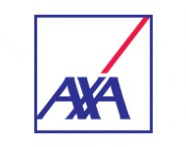Environmental insights: A Primer on ESG programs

Authored by Reynaldo Garcia and Gregg Shields, AXA XL
Corporate sustainability practices and particularly the topic of Environmental, Social and Governance (ESG) continues to receive a lot of attention. More companies are hearing from their investors, customers, and employees that they want to see more emphasis and disclosure on ESG programs. Recent surveys indicate that organizations are increasingly dedicating more resources and staffing to ESG efforts.
Environmental stewardship has long been a part of AXA XL’s Environmental insurance business’ mission to help secure the future of the environment. To support our clients as they navigate their ESG journey, we just published our most recent whitepaper -- Sustainability, Corporate Social Responsibility, and Environmental, Social, Governance (ESG) Programs – to offer some insights and guidance on factors to consider.
ESG programs seek to integrate green practices and corporate social responsibility within broader goals of enterprise risk management and financial performance. Companies develop and report on ESG programs to address rapidly evolving regulatory requirements and investor and business partner expectations, all while pursuing optimal profitability and social purpose.
AXA XL, which first published Corporate Sustainability Programs guidance over ten years ago, recognizes this approach as complementary to our own risk management products and services. As our sustainability strategy has matured and grown in sophistication, we have acted on opportunities to ensure that our products, programs and positions reflect evolving priorities related to climate change, water resources and financial resilience. We acknowledge that most companies are in some stage of addressing various aspects of ESG and hope we can partner in like-minded efforts with our customers.
Nonfinancial performance in the spotlight
Annual ESG reports provide a structure for tracking corporations’ nonfinancial performance metrics against established environmental, social and governance criteria. However, before an ESG report can be generated, companies must perform an in-depth materiality assessment to identify the most relevant aspects of their business to a variety of stakeholders. Reports are intended to document progress toward achieving short- and long-term ESG targets and establish a record of transparency in operations and value delivery.
While these attributes can create a competitive advantage in appealing to investor interests and priorities, ESG reporting is not intended as window dressing, and “greenwashing” presents both ethical questions and liability risks. A comprehensive report serves as a tool for achieving a broad spectrum of objectives: identifying and vetting market opportunities and supply chain prospects, strengthening ties to all stakeholders, attracting and retaining talent, implementing expense reductions, and optimizing productivity and operating efficiency.
ESG reporting also provides a platform for evaluating a company against industry best practices and priority benchmarks and assessing its standards of corporate accountability to stakeholders. Evidence of this commitment to accountability may include adherence to an established and internationally recognized ESG reporting framework such as the Global Reporting Initiative, Carbon Disclosure Project, Sustainability Accounting Standards Board, Task Force on Climate Related Financial Disclosures, or the Global ESG Benchmark for Real Assets.
Addressing evolving stakeholder priorities
Among the environmental topics typically covered in an ESG report are energy consumption, carbon emissions, water use and waste management. Social topics may relate to internal or external practices, from labor policies and diversity, equity and inclusion programs to community engagement and human rights issues (such as policies against working with suppliers who violate international standards on forced labor or employment of children). Governance elements of an ESG report encompass such topics as legal and regulatory compliance, diversity at the board and executive levels, political relationships and government interactions.
As this scope of reporting suggests, we are in the midst of a transformation of perceptions of corporate responsibility in operations and governance. This transformation is still in progress, and we can expect to see further developments in reporting requirements and expectations. But financial results no longer suffice as a standalone measure of how well a corporation is performing. Those results must now be assessed in the larger picture of the company’s environmental impact and activities as a socially responsible citizen.
The ESG risk management factor
From a risk management perspective, our view at AXA XL is that in this business climate, organizations must balance the resources and level of effort expended on ESG with mandated reporting, benefits, and other factors that shape their strategy.
AXA Foresight, a publication that explores future challenges and adaptation processes, recently evaluated the trends shaping the future of business sustainability practices. This study points to a complex future where corporations will have reduced leeway to drive the evolution of sustainability. At the same time, ESG factors will continue to gain and exert influence over such core corporate priorities as marketing, sales/revenue, expense management, supply chain value, employee recruitment and retention, and shareholder/stakeholder communication.
Download AXA XL’s full whitepaper HERE
About AXA XL
AXA XL is the P&C and specialty risk division of AXA which provides property, casualty, professional and speciality products to industrial, commercial and professional firms, insurance companies and other enterprises, here in the UK and throughout the world. With underwriting teams based in the US, UK, EMEA and Asia Pacific regions, we can make decisions close to the markets you serve and work with you to tailor cover to your business needs.
We help businesses adapt and thrive amidst change. Rather than just paying covered claims when things go wrong, we go beyond protection into prevention so your business can go beyond the unexpected.

